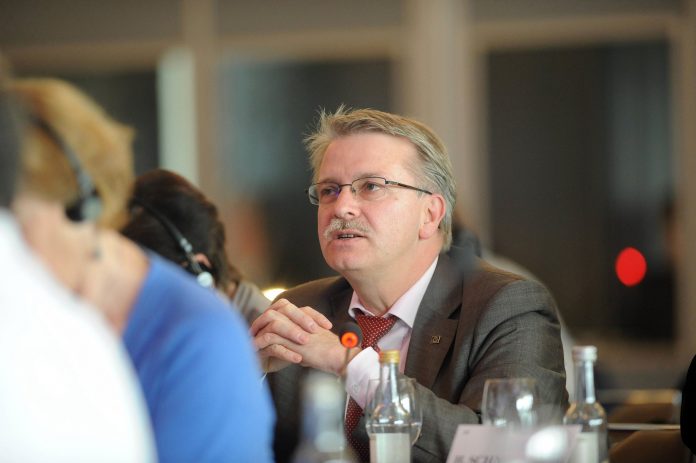Parliament welcomes progress on Ukraine’s EU association agenda, but expresses concerns over setbacks in anti-corruption efforts and continuous oligarchic influence.
In a report taking stock of the EU’s Association Agreement with Ukraine, adopted on Thursday, Parliament welcomes the advances made by Ukraine in fulfilling its commitments under the agreement, particularly in the fields of agriculture, energy, the banking sector, decentralisation reforms, the digital economy, the environment and electoral procedures. The text was approved by 526 votes in favour, 79 against with 71 abstentions.
Fight corruption and refrain from political pressure on independent institutions
The report warns, however, that a range of reforms must still be carried out in order to avoid any backsliding, and singles out the judiciary as one of the least-trusted institutions in Ukraine. Parliament criticises attempts by the authorities to exert political pressure on independent economic institutions and enforcement authorities, such as the country’s Central Bank. MEPs are also deeply worried that those with vested interests seem to be attempting to undermine the country’s achievements in the fight against corruption and overall democratic reforms. Some Ukrainian oligarchs, in particular, are attempting to recapture political power, which has weakened the reform-oriented majority in the Verkhovna Rada (Ukrainian Parliament), they say. The text urges all political actors to renew their commitment to the reforms that Ukrainian voters have demanded, which are crucial to strengthen the rule of law and eradicate corruption.
EU committed to Ukraine’s independence, sovereignty, and territorial integrity
Focussing on Russian aggression towards Ukraine, Parliament reiterates the EU’s unwavering commitment to Ukraine’s independence, sovereignty, and territorial integrity within its internationally recognised borders, and its support for the internationally coordinated sanctioning of the Russian Government. It also strongly condemns the violations of human rights and fundamental freedoms, such as freedom of expression, religion or belief and association, by separatists and Russian occupying forces in Crimea and Donbas. To better address such violations, MEPs call on the European External Action Service and the Commission to swiftly operationalise the EU global human rights sanctions regime, while paying particular attention to the situation in the temporarily occupied territories of Ukraine in Crimea and in parts of the Donetsk and Luhansk regions.
Tackling the COVID-19 emergency
MEPs take note that, before the outbreak of the COVID-19 pandemic, the Ukrainian economy had recovered stability and showed satisfactory growth and decreasing unemployment, which was fostered by the progress made in exploiting the potential of the Association Agreement/Deep and Comprehensive Free Trade Area (AA/DCFTA). They also welcome the unprecedented financial aid package that the EU made available to Ukraine to cope with the COVID-19 emergency, as a crucial demonstration of the EU’s solidarity.
“We support Ukraine on the European way of life with its promise of sustainable democracy, a fair judiciary and tangible economic and social progress”, said rapporteur Michael Gahler (EPP, DE) after the vote.

